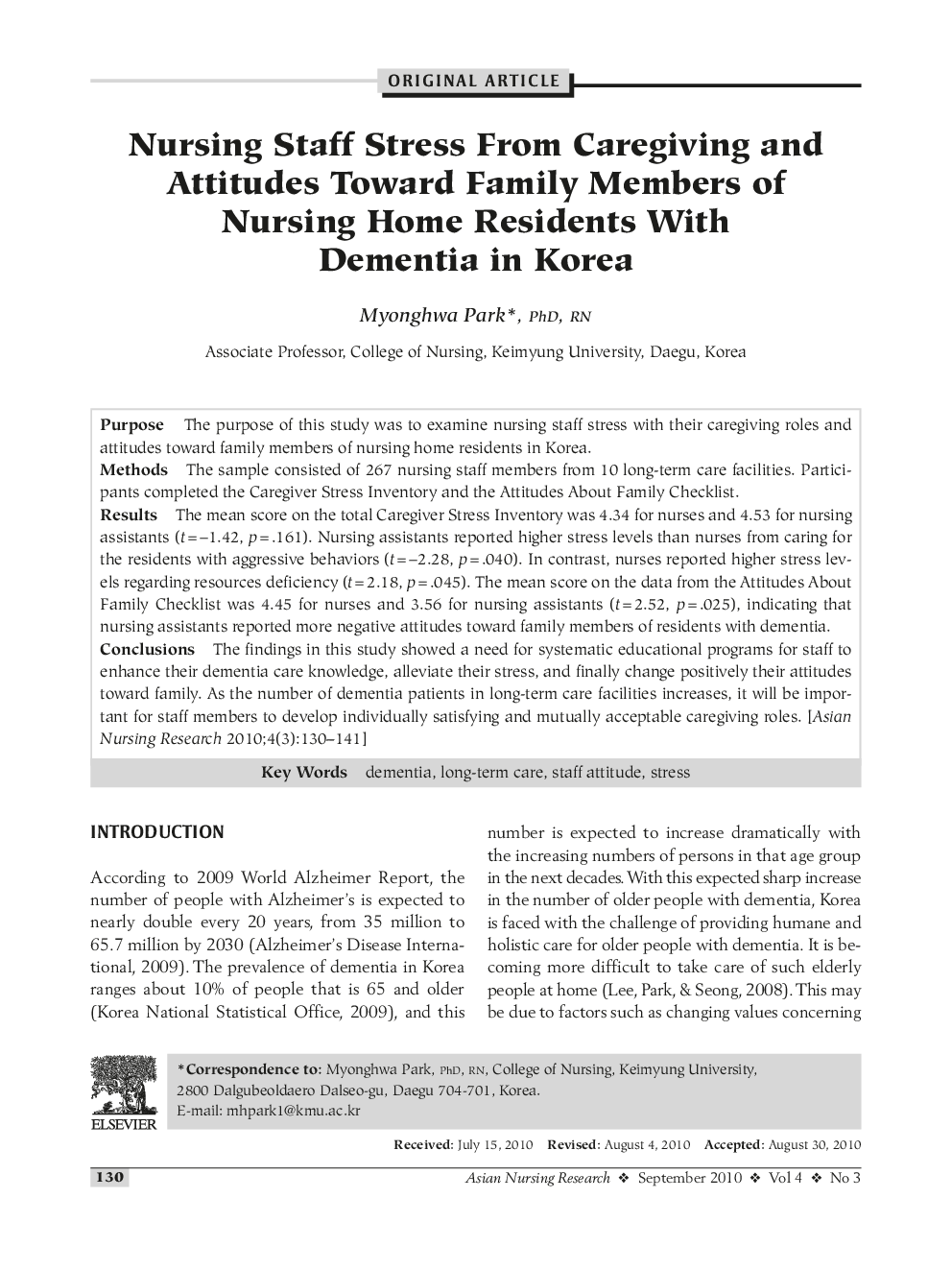| Article ID | Journal | Published Year | Pages | File Type |
|---|---|---|---|---|
| 2645285 | Asian Nursing Research | 2010 | 12 Pages |
PurposeThe purpose of this study was to examine nursing staff stress with their caregiving roles and attitudes toward family members of nursing home residents in Korea.MethodsThe sample consisted of 267 nursing staff members from 10 long-term care facilities. Participants completed the Caregiver Stress Inventory and the Attitudes About Family Checklist.ResultsThe mean score on the total Caregiver Stress Inventory was 4.34 for nurses and 4.53 for nursing assistants (t = −1.42, p = .161). Nursing assistants reported higher stress levels than nurses from caring for the residents with aggressive behaviors (t = −2.28, p = .040). In contrast, nurses reported higher stress levels regarding resources deficiency (t = 2.18, p = .045). The mean score on the data from the Attitudes About Family Checklist was 4.45 for nurses and 3.56 for nursing assistants (t = 2.52, p = .025), indicating that nursing assistants reported more negative attitudes toward family members of residents with dementia.ConclusionsThe findings in this study showed a need for systematic educational programs for staff to enhance their dementia care knowledge, alleviate their stress, and finally change positively their attitudes toward family. As the number of dementia patients in long-term care facilities increases, it will be important for staff members to develop individually satisfying and mutually acceptable caregiving roles.
